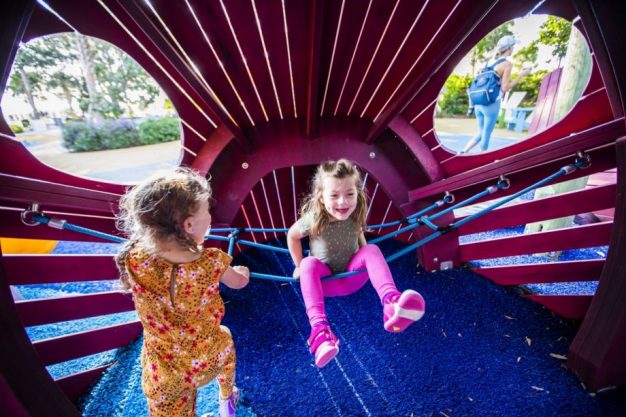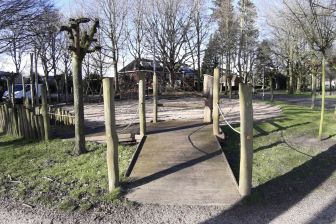
Play Wales shines a light on latest play studies
Play Wales, the national body for play, has released a summary of a new publication, Playing and being well, which takes a Welsh-focused look at child’s play, social policy and practice.
The paper, which will be published in full later in the year, is a review of the latest research literature examining these key play issues.
Play Wales commissioned the review, which has been carried out by Dr Wendy Russell, a leading academic expert on play, along with Mike Barclay and Ben Tawil from Ludicology, an independent think thank that is dedicated to ‘the study of playfulness’.
‘study of playfulness’
Under the spotlight are the connections between what the authors describe as ‘play sufficiency’ – a two-pronged legal requirement for local authorities to provide play opportunities – and children’s wellbeing, and is based mainly on academic research across a range of disciplines, but also drawing on professional, advocacy and practitioner literature. The review focuses on the role of play in children’s wellbeing, children’s play patterns, and adult support for children’s play.
Information is provided on:
- the scope and approach of the literature review
- an overview and findings from each of the chapters in the review
- the authors’ proposal of a relational capability approach to children’s wellbeing through actions to create conditions that support playing
- closing thoughts on adults’ responsibility for children’s play.
This review comes a decade after the launch of the Play Sufficiency Duty in Wales, and at the same time as the Welsh Government was undertaking a complete review of play.
Click here for the summary (PDF) document.
A new study meanwhile, published in the Psychology of sport and exercise journal, says parental attitudes towards risk in play can affect a child’s physical activity.
Play Wales has highlighted the results of this new paper, which was conducted in Australia by researchers from the UK and Australia.
‘More adventurous play habits’
Playing it safe: The relationship between parent attitudes to risk and injury, and children’s adventurous play and physical activity, examines the relationship between parent attitudes to risk and injury, and their primary school-aged child’s daily adventurous play and moderate-to-vigorous physical activity (MVPA).
Researchers from Deakin University, Australia and Coventry University in the UK, had feedback from some 645 parents and guardians in Australia. Over three-quarters of respondents (78 per cent) had a ‘low tolerance’ of risk when presented with various play scenarios, while MVPA was lower in children whose parents were less risk and injury tolerant.
Children of parents with more positive attitudes to risk and injury were also found to have more adventurous play habits.
Play Wales says that this Australia-based study has similar findings to those of the British Children’s Play Survey, which in 2020 also highlighted the relationship between parents’ tolerance of risk and children’s engagement to risky play.
Click here for more on the new study.




